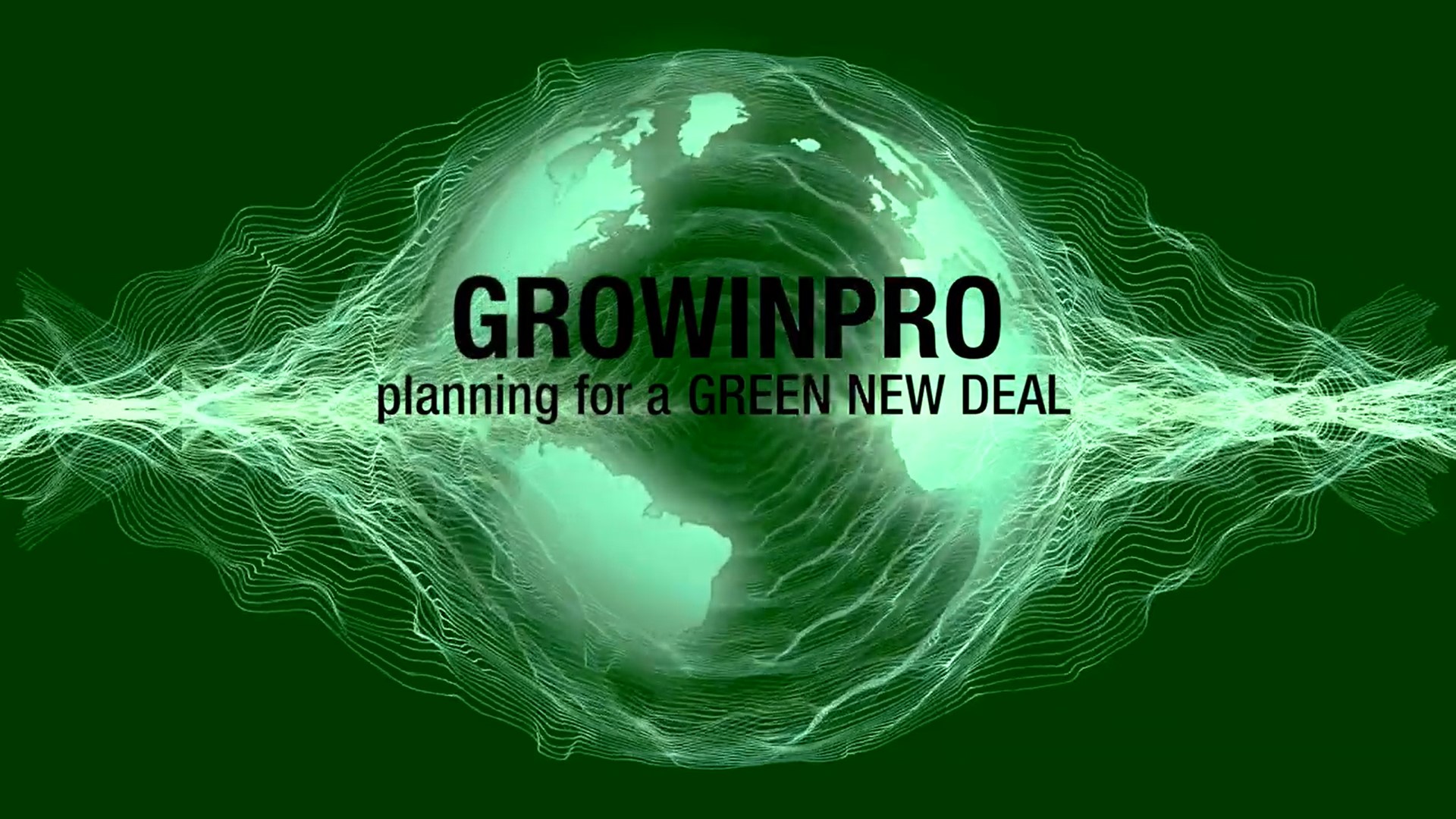A Green New Deal strategy for Europe – results from the GROWINPRO project
The GROWINPRO project brought together eleven international academic institutions and three statistical offices to provide a detailed analysis of the causes of the anaemic growth performance observed in Europe during the last decades and after the Great Recession. On the grounds of such analysis, GROWINPRO has prepared a set of policy solutions aimed at restoring sustained and inclusive economic growth with particular attention on building resilience to current challenges such as the climate and COVID-19 crises.


Tania. Treibich
Associate Professor
Macro, International & Labour Economics, School of Business and Economics
What is the GROWINPRO project?
The project first defines the updated context in which these policies will be implemented: new technologies, globalization and processes of institutional change impact on the patterns of EU innovation and productivity growth, income growth, labor markets dynamics and inequalities. Such impacts occur in the climate crisis, the most pressing societal challenge EU must face. Finally, additional challenges are posed by the fragile post-pandemic social fabric.
During the final conference last week, a wide array of policy-relevant issues has been addressed, mainly related to the following topics:
- How to achieve a sustainable growth.
- The drivers of inequality: technology and institutions.
- Patents and pharmaceutical innovations.
- Structural change, global value chain and the evolution of the international economy.
- Technology, firms, and employment.
- Pressing challenges: Climate change and COVID-19
Why is a Green New Deal needed now?
The world is facing an unprecedented crisis following the outbreak of the COVID-19 pandemic. But, as many academics and policy makers are pointing out, the global response to the crisis could inform the fight against the climate emergency.
The recovery plans that many countries are putting in place “should be focused on the green new deal strategy of lowering carbon emissions while also investing in workers, and making sure they can adapt to new technologies”, wrote Mariana Mazzucato, GROWINPRO researcher and director of the UCL Institute for Innovation and Public Purpose, on the Guardian newspaper.
Last April, a letter endorsed by 17 European climate and environment ministers urged governments “not to lose sight of the persisting climate and ecological crisis, when working out how to spur the economy after the coronavirus pandemic”.
The first GROWINPRO short documentary, filmed before the outbreak of the pandemic, focuses on the Green New Deal and on the policies that we need to implement in order to jumpstart a green, smart and inclusive growth.
Providing a comprehensive diagnostic of the climate emergency and of its consequences, as well as laying out a set of policy proposals to push Europe towards an innovation-fuelled growth is one of the core objectives of the GROWINPRO project and well in line with the actual European policies.
A policy mix to jointly tackle climate change and sustain inclusive growth
In 2019 two GROWINPRO studies published on Nature Climate Change and on Proceedings of National Academy of Science (PNAS) found, respectively, that climate-related damages can significantly affect the stability of the global financial system and that the cost of the economic damages caused by extreme natural disasters such as floods, storms, hurricanes, heat waves, droughts and wildfires have risen significantly over the last 50 years.
As climate impacts are already rapidly mounting and will likely destabilize the whole Earth system under current emission pathways, a mix of policies are needed to stay below the 2C target and possibly achieve sustainable growth. Our results show that:
- carbon-pricing policies alone are ineffective to stay below the 2C target, because the necessary level that would induce a rapid transition would have macroeconomic destabilizing effects.
- Instead, a mix of command-and-control regulation and subsidies for investments and R&D in green energy technologies can put the economy on a win-win sustainable growth pathway (deliverable 5.4). In this context, carbon taxation can be effectively used to finance green public spending while not hampering the growth outlook.
- Mission-oriented policies act as synergic tool together with climate policy and have the potential to ease the shift to a new, low-carbon growth path (WP30/2021). Investments to improve government long-term capacities and dynamic capabilities are also needed to promptly adapt the public response in face of climate change and other pressing societal challenges related to health and the digital divide (WP8/2022).
- Finally, appropriately designed credit and macroprudential policies foster macro-financial stability in the face of climate risks while mildly mitigating emission growth (Lamperti et al., 2021).
Overall, our results suggest that a European Green Deal grounded on a mission-oriented approach has potential to foster a win-win pathway characterized by net-zero emission decarbonization and sustainable growth.
Relevant links:
More information on the GROWINPRO project: http://www.growinpro.eu/
Planning for a Green New Deal video: https://youtu.be/UcyvdarCbtA